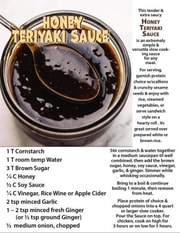
Most of us have done it countless times without a second thought—plugging in our phone or portable charger before heading to bed, trusting these devices to power down safely while we sleep.
But for 21-year-old university student Ollie Anderson, this everyday routine turned into a nightmare that left him fighting for his life.
Mr Anderson was jolted awake in his Armadale accommodation when his borrowed portable charger erupted into flames beside his bed.
'I looked down and the whole side of my body was engulfed in flames, it was shooting flames all over me,' he told 2GB radio.
The experience left him with severe burns from shoulder to wrist, requiring treatment every two days and pain so intense he couldn't pour water over the wounds.
What makes this incident particularly concerning isn't just the severity of Anderson's injuries, but how common the underlying problem has become.
The charger responsible was a Zip Zap device that had been recalled in 2024—a warning that never reached the friend who lent it to him.
A growing crisis hiding in our homes
Anderson's terrifying experience isn't an isolated incident. In September 2025 alone, Anker recalled nearly 500,000 power banks following more than 30 reports of fires and explosions, including four cases of minor burn injuries and one report of substantial property damage.
Earlier in 2025, another Anker recall affected over one million units, with the company receiving 19 reports of fires and explosions, including two burn injuries and 11 reports of property damage totalling over $60,700.
Even more alarming, the US Consumer Product Safety Commission received 79 reports of Yiisonger power banks exploding, igniting and swelling, including one report of a serious fire resulting in $15 million in property damage.
'Makes you wonder how many other people didn't see it, and how many others it could happen to'
According to the Australian Competition and Consumer Commission, there have been 17 power bank recalls since 2020, nine of them in the past two years alone. This escalating trend suggests the problem is getting worse, not better.
Why seniors might be particularly vulnerable
For those over 60, several factors may increase the risk of power bank incidents. Many seniors charge devices overnight out of convenience, potentially leaving faulty units unattended for hours.
Although many modern power banks include overcharge protection, users are still encouraged to unplug the device once fully charged and avoid charging it overnight or leaving it unattended while charging.
Additionally, older Australians may be less likely to receive or notice recall notifications, especially if they purchased devices as gifts or through friends and family, as Anderson did.
Warning signs your power bank may be dangerous
Device becomes unusually hot during charging or use
Visible swelling or bulging of the battery case
Strange chemical odours during charging
Crackling or hissing sounds
Visible damage like cracks or dents
Inconsistent charging behaviour
The hidden dangers of lithium-ion batteries
Power banks typically use Lithium-ion (Li-ion) or Lithium-polymer (LiPo) batteries. Li-ion batteries offer high energy density but are heavier and more susceptible to overheating if mishandled.
Just like a tank of petrol or a bullet in a gun, a battery has a lot of energy in it. If that energy releases in a way we don't want it to, a fire can occur or even an explosion.
The most dangerous scenario is called 'thermal runaway' - a chain reaction where the battery generates heat faster than it can dissipate it, leading to fire or explosion.
A damaged battery can develop cracks or internal leaks, triggering a chemical reaction inside the power bank, this could lead to smoke, fire, or even an explosion.
Storing a portable charger in high heat or humid conditions can damage its battery cell, just as improper practices like prolonged charging or using incompatible chargers can. These stresses on the battery may cause overheating and increase the risk of fire.
Your rights under Australian law
If you've been affected by a recalled product or suffered injury from a defective charger, Australian consumer law provides strong protection. Consumers may be entitled to compensation for damages and loss caused by an unsafe product, in addition to a replacement or refund.
If the consumer is entitled to compensation for damages and loss, generally the manufacturer or importer of the product is liable to pay this compensation. However, the seller may be liable if they can't identify the manufacturer or importer.
Under the Australian Consumer Law, if a problem constitutes a major product failure, you have the right to choose between a refund or a replacement. An unsafe product, according to the ACCC, constitutes a major failure.
Steps to take if you have a recalled power bank
- Stop using the device immediately
- Check the recall notice for specific instructions
- Contact the retailer or manufacturer for remedy
- Keep the device in a safe place away from flammable materials
- Don't dispose of it in regular rubbish—lithium batteries require special disposal
- Document any damage or injury for compensation claims
How to check if your power bank is recalled
The first step is to visit the Product Safety Australia website (productsafety.gov.au) and search for your device's brand and model number. You can also sign up for recall alerts to be notified about future safety issues.
For specific brands like Anker, companies often maintain dedicated recall pages where you can enter your device's serial number to check if it's affected.
Protecting yourself: essential safety tips
Never leave power banks charging unattended. Always monitor your power bank while it's charging. It's safer to charge it in a location where you can keep an eye on it, rather than leaving it overnight or in an enclosed space.
Avoid charging on soft surfaces like beds or couches. These materials can trap heat, preventing the power bank from cooling properly. Always place it on a hard, heat-resistant surface to allow proper ventilation.
Choose quality power banks from reputable manufacturers that adhere to safety standards. Avoid cheap, off-brand power banks, as they may lack the safety mechanisms necessary to prevent overheating or malfunction.
Example Scenario
- Sarah, 68, from Brisbane, always charged her phone beside her bed using an older power bank. After reading about recent recalls, she moved her charging station to the kitchen bench and set a timer to unplug devices after two hours. 'It's a small change that gives me peace of mind,' she says. 'I sleep better knowing there's no risk of a fire starting while I'm asleep.'
The importance of proper disposal
If you do have a recalled power bank, don't just throw it in the bin. Recalled lithium-ion batteries must be disposed of differently than other batteries, because they present a greater risk of fire.
Your municipal household hazardous waste collection centre may accept this recalled lithium-ion battery or device for disposal. Before taking your battery or device to a collection centre, contact it ahead of time and ask whether it accepts recalled lithium-ion batteries.
A call for better awareness
Anderson's story serves as a powerful reminder that the devices we trust most can sometimes be the most dangerous. As he recovers from his injuries, he's speaking out to prevent others from experiencing the same trauma.
The young student hopes to receive compensation and plans to contact Zip Zap after finishing his university exams. Meanwhile, his experience has permanently changed his charging habits: 'I don't even charge my phone at night now,' he admits.
What This Means For You
For Australian seniors, the message is clear: that convenient habit of overnight charging isn't worth the risk. Take the time to charge devices during the day when you can monitor them, invest in quality chargers from reputable brands, and stay informed about recalls through the Product Safety Australia website.
Your safety—and your family's peace of mind—is worth the small inconvenience of changing your charging routine.
Have you checked whether your power bank has been recalled? What safety measures do you take when charging devices at home? Share your experiences and tips in the comments below—your story might help keep a fellow reader safe.
Original Article
https://www.dailymail.co.uk/news/ar...tml?ns_mchannel=rss&ns_campaign=1490&ito=1490
Power Bank Fires: Why They Happen & How to Avoid Them—Energea
Cited text: This can lead to overheating and, in extreme cases, a fire. Although many modern power banks include overcharge protection, users are still encouraged...
Excerpt: Mr Anderson was jolted awake in his Armadale accommodation when his borrowed portable charger erupted into flames beside his bed.
https://goenergea.com/blogs/news/power-bank-fires-why-they-happen-and-how-to-avoid-them
Anker Lithium-Ion Battery Charger Recall Issued Following Dozens of Fires, Explosions: CPSC—AboutLawsuits.com
Cited text: Anker has recalled nearly 500,000 power banks following multiple reports of fires and explosions, urging consumers to immediately stop using the devic...
Excerpt: In September 2025 alone, Anker recalled nearly 500,000 power banks following more than 30 reports of fires and explosions, including four cases of minor burn injuries and one report of substantial property damage
https://www.aboutlawsuits.com/lithium-ion-battery-charger-recall-fires-explosions-cpsc/
Anker Lithium-Ion Battery Charger Recall Issued Following Dozens of Fires, Explosions: CPSC—AboutLawsuits.com
Cited text: The U.S. Consumer Product Safety Commission (CPSC) issued the Anker power bank recall on September 18, after receiving at least 33 reports of fire and...
Excerpt: In September 2025 alone, Anker recalled nearly 500,000 power banks following more than 30 reports of fires and explosions, including four cases of minor burn injuries and one report of substantial property damage
https://www.aboutlawsuits.com/lithium-ion-battery-charger-recall-fires-explosions-cpsc/
More than One Million Anker Power Banks Recalled Due to Fire and Burn Hazards; Manufactured by Anker Innovations | CPSC.gov
Cited text: Anker has received 19 reports of fires and explosions. This includes two reports of minor burn injuries not requiring medical attention and 11 reports...
Excerpt: another Anker recall affected over one million units, with the company receiving 19 reports of fires and explosions, including two burn injuries and 11 reports of property damage totalling over $60,700
https://www.cpsc.gov/Recalls/2025/M...urn-Hazards-Manufactured-by-Anker-Innovations
CPSC Warns Consumers to Immediately Stop Using Yiisonger Power Banks Due to Fire and Burn Hazards; Risk of Serious Injury or Death; Sold on Amazon.com | CPSC.gov
Cited text: CPSC has received 79 reports of the defective power banks exploding, igniting and swelling, including one report of a serious fire resulting in $15 mi...
Excerpt: the US Consumer Product Safety Commission received 79 reports of Yiisonger power banks exploding, igniting and swelling, including one report of a serious fire resulting in $15 million in property damage
https://www.cpsc.gov/Warnings/2025/...of-Serious-Injury-or-Death-Sold-on-Amazon-com
Power Bank Fires: Why They Happen & How to Avoid Them—Energea
Cited text: Although many modern power banks include overcharge protection, users are still encouraged to unplug the device once fully charged and avoid charging ...
Excerpt: Although many modern power banks include overcharge protection, users are still encouraged to unplug the device once fully charged and avoid charging it overnight or leaving it unattended while charging
https://goenergea.com/blogs/news/power-bank-fires-why-they-happen-and-how-to-avoid-them
Power Bank Fires: Why They Happen & How to Avoid Them—Energea
Cited text: Power banks typically use Lithium-ion (Li-ion) or Lithium-polymer (LiPo) batteries. Li-ion batteries offer high energy density but are heavier and mor...
Excerpt: Power banks typically use Lithium-ion (Li-ion) or Lithium-polymer (LiPo) batteries.
https://goenergea.com/blogs/news/power-bank-fires-why-they-happen-and-how-to-avoid-them
Everything You Should Know About Power Bank Exploding—Morui
Cited text: · Just like a tank of gasoline or a bullet in a gun, a battery has a lot of energy in it. If that energy releases in a way we don’t want it to be, a f...
Excerpt: Just like a tank of petrol or a bullet in a gun, a battery has a lot of energy in it.
https://moruipower.com/everything-you-should-know-about-power-bank-exploding/
How to Prevent a Power Bank Explosion? Key Warning Signs—Chaizer Power Bank
Cited text: ... A damaged battery can develop cracks or internal leaks, triggering a chemical reaction inside the power bank, this could lead to smoke, fire, or e...
Excerpt: A damaged battery can develop cracks or internal leaks, triggering a chemical reaction inside the power bank, this could lead to smoke, fire, or even an explosion
https://chaizer.com/en/blog/power-bank-explosion/
Power Bank Fires: Why They Happen & How to Avoid Them—Energea
Cited text: ... Storing a portable charger in high heat or humid conditions can damage its battery cell, just as improper practices like prolonged charging or usi...
Excerpt: Storing a portable charger in high heat or humid conditions can damage its battery cell, just as improper practices like prolonged charging or using incompatible chargers can.
https://goenergea.com/blogs/news/power-bank-fires-why-they-happen-and-how-to-avoid-them
Product safety | ACCC
Cited text: Consumers may also be entitled to compensation for damages and loss caused by an unsafe product, in addition to a replacement or refund.
Excerpt: Consumers may be entitled to compensation for damages and loss caused by an unsafe product, in addition to a replacement or refund
https://www.accc.gov.au/consumers/stay-protected/product-safety
Product safety responsibilities | ACCC
Cited text: If the consumer is entitled to compensation for damages and loss, generally the manufacturer or importer of the product is liable to pay this compensa...
Excerpt: If the consumer is entitled to compensation for damages and loss, generally the manufacturer or importer of the product is liable to pay this compensation.
https://www.accc.gov.au/business/selling-products-and-services/product-safety-responsibilities
Product recalls and safety—your rights | CHOICE
Cited text: Under the ACL, if a problem constitutes a major product failure, you have the right to choose between a refund or a replacement. An unsafe product, ac...
Excerpt: Under the Australian Consumer Law, if a problem constitutes a major product failure, you have the right to choose between a refund or a replacement.
https://www.choice.com.au/shopping/...ur-rights/articles/product-recalls-and-safety
Power Bank Explosion: Causes, Risks, and Safety Tips—XYZtech
Cited text: Here are some important safety tips: Never Leave Power Banks Charging Unattended: Always monitor your power bank while it’s charging. It’s safer to ch...
Excerpt: Never leave power banks charging unattended. Always monitor your power bank while it's charging.
https://xyztech.com/blogs/power-bank/power-bank-explosion-causes-risks-and-safety-tips
Power Bank Explosion: Causes, Risks, and Safety Tips—XYZtech
Cited text: Avoid Charging on Soft Surfaces: Never charge a power bank on a bed, couch, or other fabric surfaces. These materials can trap heat, preventing the po...
Excerpt: Avoid charging on soft surfaces like beds or couches. These materials can trap heat, preventing the power bank from cooling properly.
https://xyztech.com/blogs/power-bank/power-bank-explosion-causes-risks-and-safety-tips
Power Bank Explosion: Causes, Risks, and Safety Tips—XYZtech
Cited text: Choose Quality Power Banks: Buy power banks from reputable manufacturers that adhere to safety standards.
Excerpt: Choose quality power banks from reputable manufacturers that adhere to safety standards.
https://xyztech.com/blogs/power-bank/power-bank-explosion-causes-risks-and-safety-tips
Power Bank Explosion: Causes, Risks, and Safety Tips—XYZtech
Cited text: Avoid cheap, off-brand power banks, as they may lack the safety mechanisms necessary to prevent overheating or malfunction, which could lead to a powe...
Excerpt: Choose quality power banks from reputable manufacturers that adhere to safety standards.
https://xyztech.com/blogs/power-bank/power-bank-explosion-causes-risks-and-safety-tips
More than One Million Anker Power Banks Recalled Due to Fire and Burn Hazards; Manufactured by Anker Innovations | CPSC.gov
Cited text: Note: Do not throw this recalled lithium-ion battery or device in the trash, in the general recycling stream (e.g., street-level or curbside recycling...
Excerpt: Recalled lithium-ion batteries must be disposed of differently than other batteries, because they present a greater risk of fire
https://www.cpsc.gov/Recalls/2025/M...urn-Hazards-Manufactured-by-Anker-Innovations
More than One Million Anker Power Banks Recalled Due to Fire and Burn Hazards; Manufactured by Anker Innovations | CPSC.gov
Cited text: Your municipal household hazardous waste (HHW) collection center may accept this recalled lithium-ion battery or device for disposal. Before taking yo...
Excerpt: Your municipal household hazardous waste collection centre may accept this recalled lithium-ion battery or device for disposal.
https://www.cpsc.gov/Recalls/2025/M...urn-Hazards-Manufactured-by-Anker-Innovations







